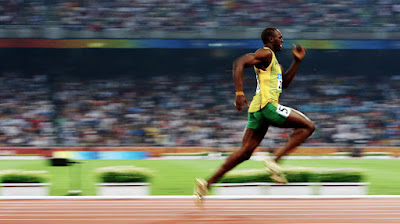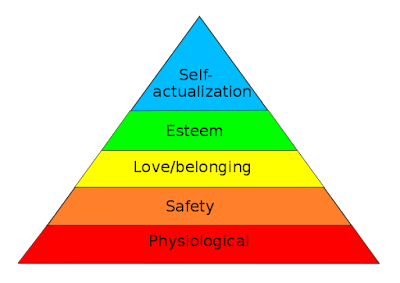How Well Can You Predict What’s In The Future?
What if you can predict the future?
Would it make your life easier?
Would it make your career more vibrant?
Of the closest words to describe the future, one of them is uncertainty. Although many times, people make predictions, they give their forecasts, and are pretty confident about it.
But most times too, it is rare to have a perfect prediction. And many times, we assume predictions are correct when the future event comes close.
Need a fortune teller?
Are people who call themselves fortune tellers really capable of telling you the future or are just preying on your thirst to know what’s coming?
There is a prediction of $20 billion dollar profit for a company but the company ended up making $24 billion. The forecaster is a hero because the prediction is ‘somewhat’ right as the company made ‘big’ profits as predicted.
Now, consider another prediction when a forecaster predicts $2 billion loss for another company but the company ends up making $2 billion profit. Of course, we’ll be fast to say the company surprised everyone and turned out a profit instead of a loss.
 |
| Source: Pixabay.com |
But there is a gulf of $4 billion between both predictions. People judge predictions on two scales when referring to the results.
Is it on the same side? If there was a prediction of profit, was there a reality of profit at all or a loss? A loss usually means the prediction was wrong but a profit means it at least right to an extent.
Many times, prediction is a subjective game rather than the objective insight we make it out to be.
Prediction is tricky
“It’s a subterfuge,” Richard Watson, British professor and futurist said about his ‘futurist’ title. “It’s an excuse to have someone who thinks deeply provoke people at corporations into reflection.”
Most times, we predict the future for good reasons. To either work towards our predictions or to work to prevent the predictions.
Can you predict success in your career? How big a success will you be? Can you predict progress in your career? How high will you climb the ladder?
It can be comforting to know exactly how far you’ll go. But it is often impossible to have this knowledge.
We usually predict the future by taking account of events in the past and current happenings. However, there is a lot of data on past events and current happenings that we can’t capture everything.
It is common for forecasters to just pick the data they think is more important to the events. In some cases though, this may not be the metrics that affect the future.
Abraham Lincoln’s advice
Abraham Lincoln said: “the best way to predict the future is to create it.” This is sensational and inspirational. But it is statistically incorrect. Because you can’t perfectly create the future.
A particular action doesn’t lead to the same result every time. There are always external factors which change with time. You can’t control these factors but they affect your results. Even if your actions have stayed constant.
Mark Zuckerberg started Facebook in 2004. 14 years later, Facebook is the largest social network and one of the largest companies in the world.
If a company starts a social network now that is as good as Facebook, does it mean in 14 years time, they’ll achieve what Facebook has achieved now?
Most likely not. Because the time is different and the external factors are also different too. The competition among the social media networks to attract users is stiffer now than 2004.
When Ray Dalio got his prediction wrong
In his book, Principles, Ray Dalio, the founder of the world’s biggest hedge fund, Bridgewater Associates, talked about a prediction that almost sent him out of business. In 1982, he predicted that there would be a stock market crash due to the amount of money that US banks have borrowed other countries.
He was so confident about it. Part of the reasons he had this confidence was because of events in history. He was right to predict what he predicted due to the information he had at the time.
But he had missed some parts of the data that turned out to have the biggest effect on the future. He got his prediction wrong and this nearly sent him out of business.
But does this mean we should all run away from predictions? No. We should always try to predict the future.
 |
| Ray Dalio. Source: Fortune |
“As in 1971, I had failed to recognize the lessons of history. Realizing that led me to try to make sense of all movements in all major economies and markets going back a hundred years and to come up with carefully tested decision-making principles that are timeless and universal.” – Ray Dalio.
As unpredictable as predictions may be, it is the best thing we have to get a glimpse into the future.
The part of prediction to be cautious about is the data we use to make the prediction. Is it robust enough? Does it give you the full picture of why an event happened in the past?
Can you predict your next promotion?
Why did you get the promotion you got last year? You have some reasons you credit it to. Are you sure those reasons had the biggest effect on your promotion?
When you’re able to detect what really caused the success or failure in the past, then you’re able to do more of what led to success. This way, you can predict more success in the future.
However, you need to look deeper, past the flashy things that pretend to be the causes. You need to question ruthlessly so that you can have the knowledge of the real things that made the difference in the past and that are making it now.
If you know what led to failure, you can change those metrics. Then you’ll be able to predict a better result in the future.
For instance, let’s say Donald is an intelligent worker with a wonderful attitude and connects well with his coworkers. Donald got a promotion. His boss told him it was because of his results.
Donald looked at his results and believed it was due to his intelligence. To Donald, his intelligence has led to his promotion. If Donald would predict his future, he would probably think maintaining his intelligence would get him another promotion.
This could be true. Another thing that could be true is that Donald might have gotten the promotion also because of his good attitude and connecting well with people.
What if Donald maintains his intelligence but grows arrogant? He may fail to get another promotion. In such a case, he would have predicted wrongly. Because he failed to get the accurate data about what really led to his promotion in the past.
Ray Dalio got it right
When Ray Dalio missed his prediction, this gave him a new insight on capturing enough data on the present and the past to predict the future.
He says that his hedge fund, Bridgewater Associates, now uses computers to save data to eliminate the error of omissions that human beings are prone to.
Before the downfall of the economy in 2008, Ray Dalio predicted it correctly. And this allowed his company to go through the economic problems without a hit to his company. In fact, their investment vehicles rose 8.7% in 2008.
They had predicted the future and they had prepared for it.
Conclusion
Can you predict perfectly, what will happen to your career in the next 5 years? Well, perfect may be far-fetched.
But if you have an accurate assessment of what caused events in the past and what’s happening now, you have the best chance to predict the future. And to work towards it, or change the variables to change the results in the future.
To read more about personal and career development, visit the home page.
If you want me to write for you or your business, I’ll be delighted to help you achieve your targets through copywriting.




Great post. Loved it, strange thing is most times we predict great things, it is a not so common to predict the bad effects of bad attitude for example(guess we are too positive 😀)
ReplyDeleteYes, that's true. We're usually too optimistic. Hoping for the best but not preparing for the worst. We must always look at both sides of the equation before making predictions. Thanks for the comment.
Delete